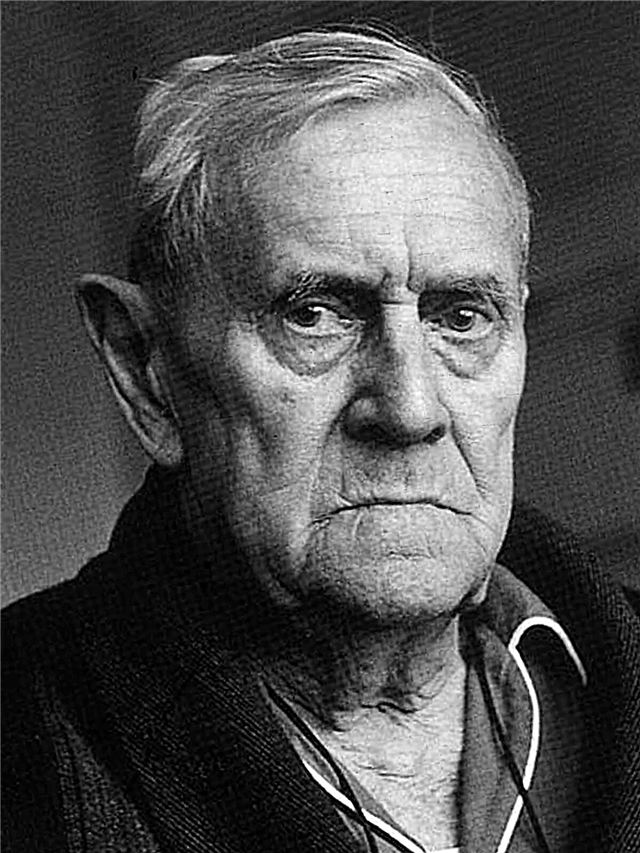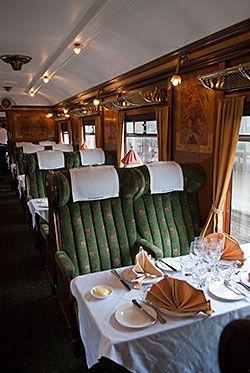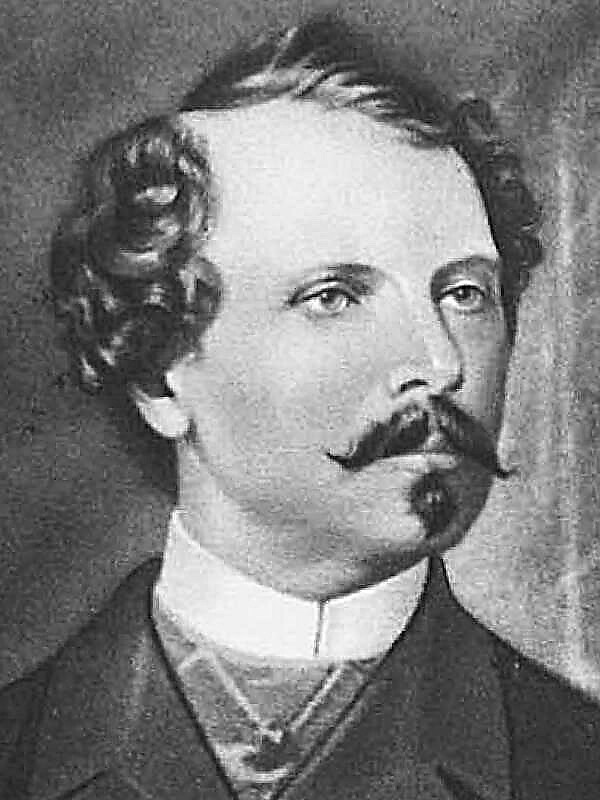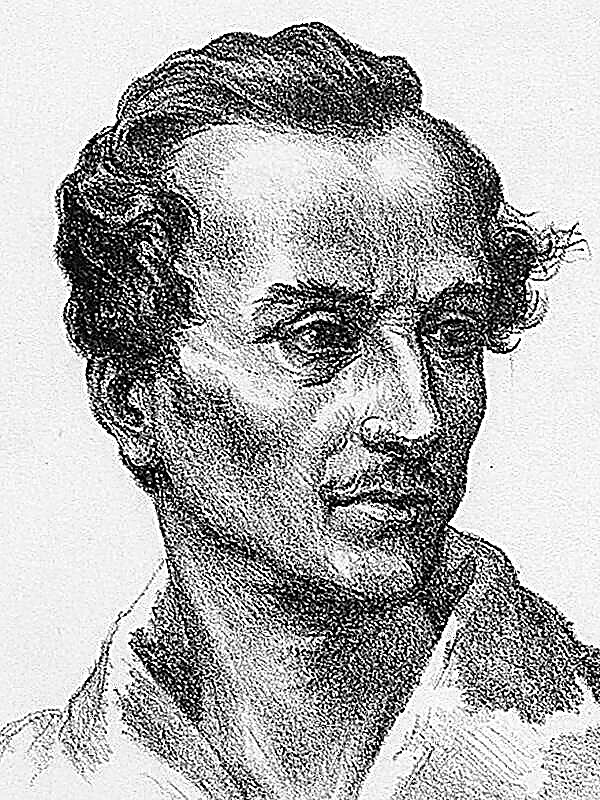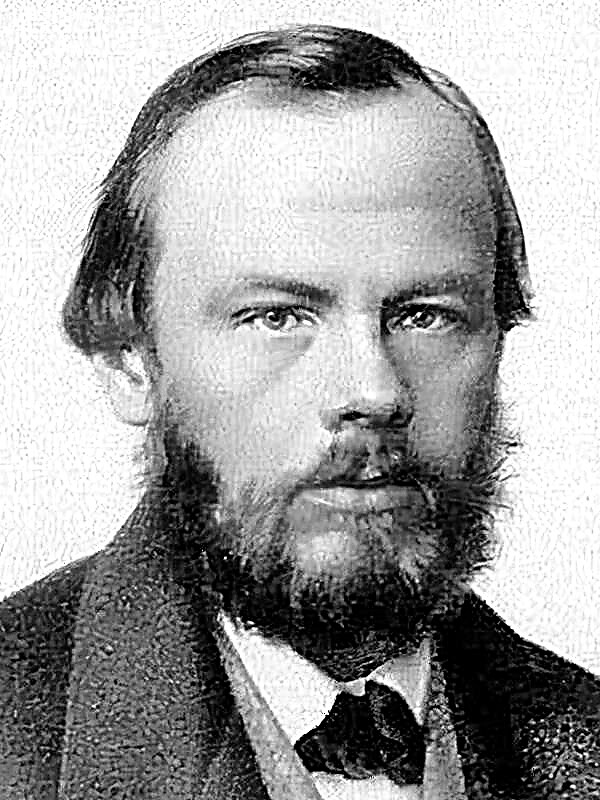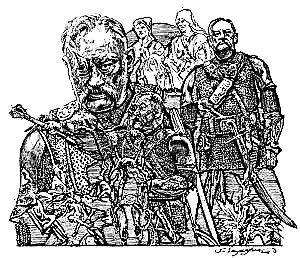Franz Bieberkopf, a former cement worker and loader, has just been released from a Berlin prison in Tegel, where he spent four years for the murder of his girlfriend. Franz stands on a busy street amidst a noisy crowd and sparkling shop windows. This strong and broad-shouldered man, a little over thirty years old, feels lonely and defenseless, and it seems to him that the “punishment” is just beginning. The longing and fear take hold of the Frenchman, he clogs into the entrance of a house. There he is discovered by a stranger, a Jew with a large red beard, and leads Franz to himself, in a warm room. Friendly prisoners listen and encourage the recent prisoner.
Bieberkopf calms down and feels a surge of strength. He is again on the street, among free people, and he can manage his own life. At first he just sleeps, eats and drinks beer, and on the third day he goes to the married sister of his murdered lover and, not meeting resistance, takes possession of her. After that, Franz feels the same - irresistible and strong. Once a pretty locksmith's daughter fell in love with him, a dissolute guy turned her into a prostitute and eventually beat him to death. And now Franz swears to the whole world and to himself that from now on he will become a "decent man."
Bieberkopf begins a new life with a job search, and he has already found a girlfriend for himself. One fine morning, Franz stands in the center of Berlin, on the corner of Alexanderplatz - "Alex" and sells fascist newspapers. He has nothing against the Jews, but he stands for order. At lunch, Franz comes to the pub and hides his bandage with a swastika in his pocket - as a precaution. But the beer gardeners, young workers and the unemployed, already know and condemn him. Franz makes excuses, he participated in the First World War, in the eighteenth year he fled from the front. Then there was a revolution in Germany, then inflation, ten years have passed since then, but life is still not happy. Workers cite Russia as an example, where the proletarians are united by a common goal. But Franz is not a supporter of proletarian solidarity, he has “his shirt closer to his body”, he wants to live in peace.
Soon Franz gets tired of selling newspapers, and he sells random goods, all the way to the shoelaces, taking as his companions the long-standing unemployed Luders. Once a pleasant incident happens to Franz. In one house, offering laces to a pretty lady, Franz begs for a cup of coffee. The lady turns out to be a widow and shows a clear interest in a hefty man with cheerful “bull eyes” and blond hair. The meeting ends to mutual pleasure and promises a meaningful continuation.
It was then that Franz had to endure the first shock in a new life, which “substitutes the leg”, prepares deception and betrayal. A friend of Lüders, whom he trusted, comes to the widow, introducing himself as Franz’s envoy, takes cash from her, insults her and faints her. Now the road to the house and heart of the widow is closed to Franz.
Franz again has a fit of confusion and fear, it seems to him that he is falling to the bottom of the abyss, it would be better if they would not have let him out of Tegel. When Luders comes to him to explain himself, Franz barely restrains a fierce desire to kill the offender. But nevertheless, he copes with his experiences and convinces himself that he is firmly on his feet and that he can’t take it with his bare hands. Franz decisively changes his home and work and disappears from the field of view of his friends, leaving them convinced that he is "crazy", because Franz is a "hero", he has been engaged in hard physical labor all his life, and when he tries to work with his head, she "gives up" .
Franz begins to realize that his plan to become a decent person, with all its apparent simplicity, is fraught with some kind of mistake. He goes to consult his acquaintances, Jews, and they persuade him once again to try to live honestly. However, Franz decides that “in their way” he will not live, he tried, but it didn’t work, he doesn’t want to work anymore - “the snow will light up,” and then finger will not hit his finger,
For several weeks, Franz gets drunk - with grief, out of disgust for the whole world. Drinks everything that he had, but does not want to think about what will happen next. Try to become a decent person when there are only scoundrels and villains around.
Finally, Franz crawls out of his hole and again sells newspapers on Alex. A friend introduces him to a company of young men, allegedly "fruit traders." With one of them, the skinny Reinhold, Franz converges rather closely and renders him, first involuntarily, and then consciously some "services". Reinhold is quickly bored by his mistresses; he is “forced” to change them every two weeks, “selling” the girl Franza who has bored him with a “dowry”. One of the “little women” “takes root” so well with Franz that he does not want to exchange her for the next. Franz decides to “educate” Reinhold, to learn how to live as a decent person, which causes hidden hatred in that.
A gang of bandits engaged in large-scale robbery under the guise of fruit trading invites Franz to work with them for “first-class” goods for “brilliant” earnings. Franz has some vague suspicion, he realizes that these people need to keep an “eye out”, but nevertheless agrees. When they put him at the gate of the warehouse to guard the loot, he realizes that he was trapped. While he is thinking about how to “get away” from the “damned punks”, he is pushed into the car - he has to escape from his pursuers. On the way, Reinhold decides to settle accounts with the “fat-faced” Bieberkopf, who refuses to accept girls from him and pretends to be “decent,” and pushes him out of the car at full speed.
Franz survives by losing his hand. Now he lives with Herbert and Eve, his friends from earlier times, who cured him in a good clinic. Herbert calls himself a "broker" and does not need money, Eve has rich fans. Franz’s friends know a lot about the gang from which he suffered, but they don’t know anything about the role of Reinhold. Having heard about Franz’s futile attempts to live “honestly,” they understand why, after prison, he did not come to them for help. Now, it does not matter to Franz where the money comes from friends, he wants to recover.
And for the third time, Franz appears on the streets of Berlin, on Alex. It is as if he has become a different person; everywhere he sees swindle and deception. He does not care how to make a living, just not to work. Franz sells stolen goods, just in case he even has "fake" documents. He looks like a venerable "burger-sausage", on holidays he wears an "iron cross" on his chest, and it is clear to everyone where he lost his hand.
Eve finds a girlfriend for Franz - a minor girl, a prostitute. Franz is very happy and lives with his Mizzi in perfect harmony, he may well give up his “job”, as the little one has a regular admirer with big money. Franz himself often acts as a husband in the same company with a fan. He believes that he didn’t ask for “pimps”, this life has treated him like that, so he’s not ashamed. He already does not want to hear about honest work, his hand was "chopped off".
Franz is impatient to meet Reinhold, he himself does not know why - maybe he will demand a new hand from him. Soon he again finds himself in a gang and, of his own free will, becomes a raider, getting his share, although he does not need money. Herbert and Eve cannot understand him, and the devoted Mizzi is very worried about him.
Wanting to show off his girlfriend to Reinhold, Franz introduces him to Mizzi, and for this it is a good opportunity to get even with a self-confident one-armed boob. Having lured Mizzi for a walk in the forest, Reinhold tries to take possession of it, but runs into serious resistance from a girl adoring Franz. Then, in blind hatred and envy of Franz, he kills the resisting Mizzi and buries the corpse.
When Franz finds out about the murder of Mizzi, he feels like a "finished" man, whom nothing will already help, all the same, "crushed, broken." During the raid in the beer hall on Alex, his nerves can’t stand it; he starts a shootout with the police. Franz is sent to prison, and Reinhold manages to direct the suspicion of the police at him as a murderer.
Franz is finally broken and ends up in a prison psychiatric hospital, where he is silent and refuses food. Assuming that the prisoner feigns insanity, he is prescribed compulsory treatment. But Franz fades away anyway, and the doctors back away from him. When death, which seems to Franz in his delusional dreams, really turns out to be very close, the desire to live flashes in a stubborn patient. The pimp and the killer dies, and another person comes to life on the hospital bed, who blames not all fate, not life, but himself.
At the trial, Franz testifies and proves his alibi. Reinhold gives one friend out of the gang, Franz does not say anything about him, except that he considers it necessary, even did not say a word about the circumstances of the loss of his hand. Franz believes that he is to blame, there was no need to contact Reinhold. Franz even has some affection for the defendant, who was sentenced to ten years in prison. Reinhold is surprised - Bieberkopf behaves “strangely decently”, it is clear that he still has “not all at home”.
Franz is at large, he works as a shift watchman at one factory. There he is not alone, as happened at Alexanderplatz, around him, people, workers, the battle is in full swing. Franz knows that this is “his battle,” he himself is among the fighters, and with him thousands upon thousands of others.



 Do not work with assholes
Do not work with assholes